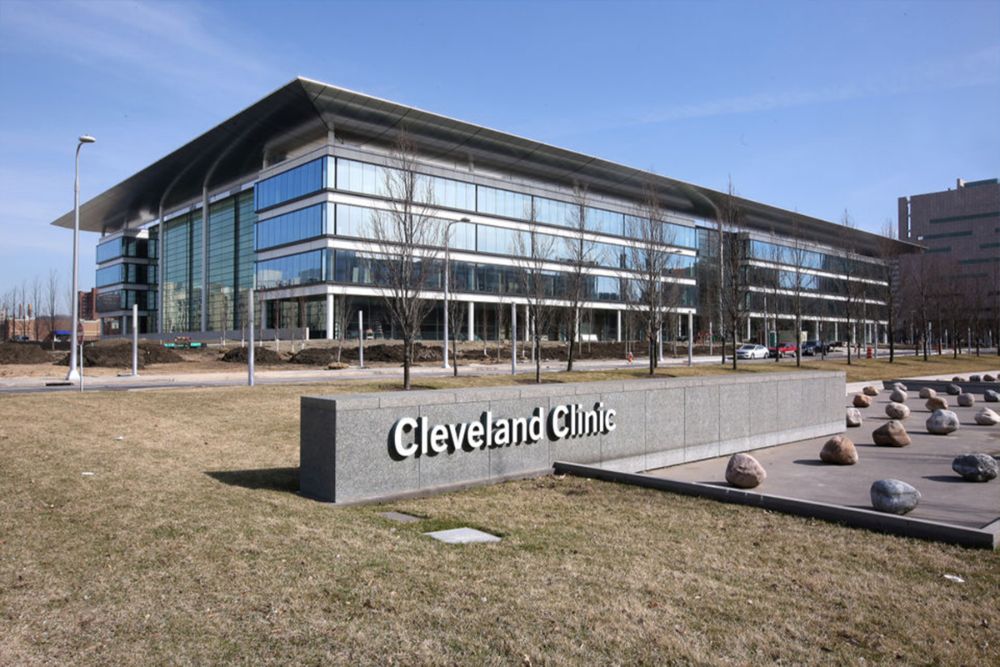The Comprehensive Guide to the Duke University School of Medicine
Introduction
Welcome to the comprehensive guide to the Duke University School of Medicine! Whether you're considering pursuing a medical degree, already a student, or simply interested in learning more about this esteemed institution, this guide aims to provide you with all the essential information about the Duke University School of Medicine. From its history and academic programs to campus facilities and student life, we will explore the various aspects that make this medical school a unique and exceptional place of learning.
History of the Duke University School of Medicine
The Duke University School of Medicine, located in Durham, North Carolina, has a rich history that dates back to its founding in 1925. It is one of the leading medical schools in the United States, known for its commitment to excellence in education, research, and patient care. Over the years, the school has made significant contributions to medical science and has trained numerous physicians who have gone on to become leaders in their respective fields.
Academic Programs
The Duke University School of Medicine offers a wide range of academic programs designed to prepare students for successful careers in medicine. The curriculum emphasizes a strong foundation in biomedical sciences, clinical skills development, and opportunities for research. Key academic programs at the school include:
-
Doctor of Medicine (MD): The MD program at the Duke University School of Medicine is a comprehensive four-year program that provides students with a rigorous and well-rounded medical education. The curriculum includes classroom-based learning, hands-on clinical experiences, and opportunities for research and scholarly inquiry.
-
Dual Degree Programs: The school offers several dual degree programs, allowing students to pursue additional degrees alongside their medical education. These programs include MD/PhD, MD/MBA, MD/MPH, and MD/Master of Management in Clinical Informatics, among others. Dual degree programs offer students the opportunity to integrate their medical training with other disciplines and pursue their specific interests.
-
Physician Assistant Program: The school also offers a Physician Assistant Program, which prepares students to become licensed physician assistants who work alongside physicians in providing patient care. The program combines classroom instruction, clinical rotations, and hands-on experiences to develop competent and compassionate healthcare providers.
Campus Facilities
The Duke University School of Medicine is located on the Duke University Medical Center campus, which spans over 210 acres. The campus features state-of-the-art facilities that support medical education, research, and patient care. Some notable campus facilities at the school include:
-
Trent Semans Center for Health Education: The Trent Semans Center is a modern facility that houses classrooms, lecture halls, simulation centers, and collaborative learning spaces. It is equipped with advanced technology to facilitate interactive and innovative teaching methods, fostering a dynamic learning environment.
-
Duke University Hospital: The school is closely affiliated with Duke University Hospital, a nationally ranked academic medical center. The hospital serves as a premier clinical training site for students, providing access to a wide range of medical specialties and a diverse patient population.
-
Research Laboratories: The school is home to cutting-edge research laboratories where faculty and students conduct groundbreaking research. These laboratories are equipped with advanced equipment and technologies, enabling innovative scientific discoveries and medical advancements.
Research Opportunities
The Duke University School of Medicine is renowned for its research programs and offers numerous opportunities for students to engage in scientific inquiry. The school is committed to advancing medical knowledge and understanding, and students have access to state-of-the-art research facilities, renowned faculty mentors, and funding resources. Whether it's basic science, translational research, or clinical investigation, students can participate in research projects and contribute to the advancement of medical science.
Clinical Education
Clinical education is a central component of the curriculum at the Duke University School of Medicine. Students gain hands-on clinical experience through rotations at affiliated hospitals, clinics, and healthcare institutions. The school's close affiliation with Duke University Hospital and other regional healthcare facilities provides students with exposure to a diverse patient population and a wide range of medical conditions. Clinical education focuses on developing clinical skills, professionalism, and compassionate patient care.
Student Life
The Duke University School of Medicine offers a vibrant and supportive student community. The school recognizes the importance of a well-rounded educational experience and provides opportunities for students to engage in extracurricular activities, student organizations, and community service initiatives. Some aspects of student life at the school include:
-
Student Organizations: Students can join various student organizations and interest groups focused on medical specialties, research, community outreach, and advocacy. These organizations provide opportunities for networking, mentorship, and professional development.
-
Community Service: The school encourages students to actively engage in community service activities and initiatives. Students have the opportunity to participate in medical outreach programs, volunteer at local clinics, and contribute to projects that address healthcare disparities in underserved communities.
-
Campus Events: The school organizes academic conferences, seminars, and speaker series that bring together students, faculty, and experts in diverse medical fields. These events provide valuable learning opportunities, foster intellectual exchange, and expose students to cutting-edge medical advancements.
Notable Alumni
The Duke University School of Medicine has a distinguished alumni community that includes accomplished physicians, researchers, educators, and healthcare leaders. Notable alumni of the school include:
- Dr. Charles A. Sanders - Former President of the American Cancer Society and former Director of the National Cancer Institute.
- Dr. Harvey J. Cohen - Renowned geriatrician and researcher in aging and immunology.
- Dr. Brenda Armstrong - Pediatric cardiologist and advocate for improving healthcare access for underserved populations.
FAQs
-
Q: How can I apply to the Duke University School of Medicine? A: Prospective students must complete the American Medical College Application Service (AMCAS) application and submit additional materials through the Duke-specific application portal. The admissions process evaluates academic achievements, MCAT scores, letters of recommendation, personal statements, and interviews.
-
Q: What are the prerequisites for applying to the school? A: The school requires completion of specific premedical coursework, including biology, chemistry, physics, mathematics, and English. Applicants should refer to the official admissions website for detailed prerequisite information.
-
Q: Does the school offer financial aid? A: Yes, the Duke University School of Medicine offers financial aid options, including scholarships, grants, loans, and work-study programs. Students are encouraged to explore the financial aid resources and opportunities available to them.
-
Q: What research opportunities are available at the school? A: The school offers a wide range of research opportunities, including basic science research, clinical research, and translational research. Students can work with faculty mentors on ongoing projects or pursue their own research interests through independent projects or fellowships.
Conclusion
In conclusion, the Duke University School of Medicine stands as a renowned institution that provides exceptional medical education, fosters groundbreaking research, and prepares future physicians to excel in their careers. With its rich history, comprehensive academic programs, state-of-the-art facilities, and vibrant student community, the school offers a dynamic learning environment for those passionate about making a difference in healthcare.

 By
By


